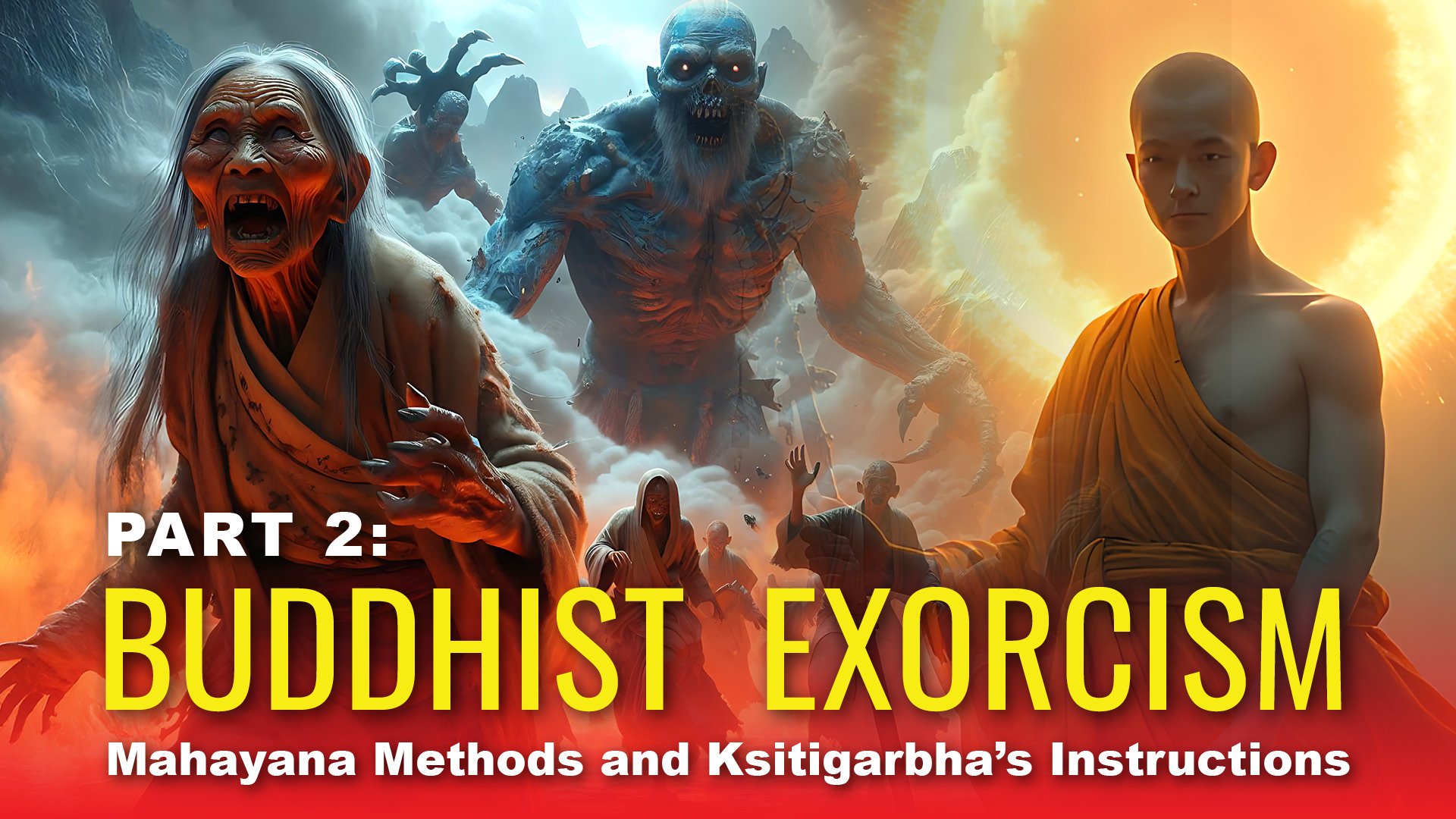Buddhism and the Politics of Desire
Scholar Jonathan Gold addresses Slavoj Žižek’s dismissal of Buddhism as escapist. The post Buddhism and the Politics of Desire appeared first on Tricycle: The Buddhist Review.

Slavoj Žižek doesn’t like how Buddhism is practiced in the West. For over two decades the Slovenian philosopher has accused Buddhist teachings of enabling complacency in capitalist societies. In his latest book, Against Progress, he takes it further, claiming that Buddhist ideas also undermine the possibility of radical political change. But is that a fair reading? To unpack Žižek’s views and explore how Buddhist traditions might respond, Tricycle spoke with Jonathan Gold, a professor of Buddhist philosophy at Princeton University, whose work explores the intersections of Buddhist ethics and social engagement.
“For the most part,” begins Gold, “Žižek constructs a vision of Buddhism that serves the dialectical purposes of his argument, so he ends up selecting extreme positions from various sources to make a point. Instead of acknowledging Buddhism’s diversity, he picks one view and presents it as representative of the whole. That’s a serious problem, because there is no singular Buddhist perspective.”
Gold stresses that Buddhist teachings vary drastically across different times, traditions, and places. Not recognizing this can lead to simplistic distinctions, but the reality is almost always much more complex: “Take, for instance, Žižek’s critique of the common belief that meditation is central to Buddhist practice. The idea that meditation is the defining feature of Buddhism is indeed something of a modern development—and is centered in American and European contexts. But that doesn’t mean that past Buddhists haven’t really meditated, or that today’s meditators are somehow betraying the real tradition.”
Žižek attributes Buddhism’s growing popularity in the Western world to its promise to ease the suffering caused by capitalism, an economic system based on the perpetuation of desire. As early as 2001, in the essay “From Western Marxism to Western Buddhism,” he expressed skepticism toward such claims: “Although Buddhism presents itself as the remedy for the stressful tension of capitalist dynamics, allowing us to uncouple and retain inner peace and Gelassenheit [self-surrender],” he writes, “it actually functions as capitalism’s perfect ideological supplement.” A self-described “conservative Communist,” Žižek dislikes Buddhism because, in his eyes, its world-renouncing practices support the preservation of the status quo by downplaying the need for reform. Instead of changing the world for the better, Buddhists seem to say we should just meditate and learn to accept things as they are.
A decade later, in a 2012 lecture, “The Buddhist Ethic and the Spirit of Global Capitalism,” Žižek describes an investment manager who uses Buddhist perspectives to cultivate acceptance and an “inner distance” from the unpredictable ups and downs of the stock market. To be fully engaged in such a market would be crazy-making, and so here Buddhist detachment helps the manager cope with a stressful workplace.
Unlike some critics, Gold does not entirely dismiss this element of Žižek’s argument. “I think there’s some truth to it,” he says of the notion that Buddhism can and has been used as a coping mechanism for those living in capitalist societies. “It’s certainly true that Buddhist meditation can help manage anxiety, stress, and even physical pain. In that sense, one could argue that Buddhism, in certain contexts, can function as an opiate, to use Marxist terminology. That’s something Buddhists themselves ought to be aware of and concerned about.” That said, Gold notes that Žižek fails to acknowledge that Buddhist meditation can do much more for people than relieve their stress: “I’d argue the main function of meditation is to use the calm that emerges from settling anxiety to introspect, understand oneself better, and see things more clearly.”
Such clarity can help us address social, political, and economic issues. “There have been many Buddhist thinkers who have engaged in political action grounded in Buddhist values like compassion and interconnectedness,” says Gold. Thich Nhat Hanh (1926–2022), a Vietnamese monk and activist known for founding the Plum Village Monastery in France, was a champion of Engaged Buddhism. Hanh advocated for applying Buddhist teachings to our practical, everyday lives, using wisdom to improve the world rather than try to withdraw ourselves from it—an approach illustrated by his famous statement, “When bombs begin to fall on people, you cannot stay in the meditation hall all of the time.”
The main function of meditation is to use the calm that emerges from settling anxiety to introspect, understand oneself better, and see things more clearly.
And Hanh is hardly alone in this conviction. Many Buddhists challenged injustice: “It is, therefore, simply inaccurate to say that Buddhism has only served as a passive support for capitalism. Think about Bernie Glassman, Sulak Sivaraksa, Rita Gross, Larry Ward, or any number of others associated with Engaged Buddhism. They are not always directly criticizing capitalism, but it is standard to criticize systemic exploitation associated with profit-driven motives.”
A second reason for Žižek’s negative evaluation of Buddhist detachment stems from his commitment to Jacques Lacan—the psychoanalyst and psychiatrist widely regarded as “the French Freud.” Psychological perspectives generally acknowledge the pervasive influence of the ego and desire, but they see these as intrinsic to the human situation, not necessarily things to be overcome. Following Lacan, Žižek maintains that desire is, by its very nature, “excessive” because it cannot be satisfied by attaining a specific object or goal. Differentiating between Lacanian and Buddhist approaches, Žižek also considers “jouissance,” the enjoyment that comes through transgressing or exceeding normal limits and boundaries, an integral aspect of human psychology.
Žižek’s understanding of desire “is rooted in a Lacanian framework,” Gold explains, “where desire is always excessive, always containing a constitutive surplus. From this perspective, capitalism aligns naturally with human nature, and there’s no way to transcend that. Buddhism certainly says that human desire is generally excessive, but Buddhism fundamentally rejects the idea that human nature, including the nature of desire, is fixed or essential. The four noble truths are based on the idea that craving and attachment can be countered and overcome through practice. Žižek argues that suppressing desire implies fascism, that any effort to curb desire requires ideological control from above. Buddhist practice, on the other hand, isn’t about repression; it’s about understanding and transforming desire.”
Where Žižek sees efforts to control desire as oppressive, Buddhism proposes the opposite. “The Buddha,” notes Gold, “explicitly warned against both indulgence and extreme asceticism, advocating for a middle way: a path that is ethical and also pleasurable.” Pleasure, “in a Buddhist sense,” can come through restraint: “Restraint doesn’t deprive but liberates us. It can be freeing. To take a modern example, many people find joy in a digital detox, in stepping away from constant stimulation. In Buddhist practice, restraint creates mental clarity, which allows for more ethical engagement with the world.”
In Against Progress, Žižek does not discuss Buddhism in relation to capitalism; rather, he focuses on degrowth communism, as advocated for by the contemporary Japanese philosopher Kōhei Saitō. In Slow Down: The Degrowth Manifesto and Marx in the Anthropocene, Saitō argues that collective well-being and environmental sustainability can be achieved by rejecting the capitalist need for economic expansion. Saitō has discussed Buddhism on occasion, but it does not play a prominent role in his degrowth model. Žižek, however, introduces a parallel between Saitō’s model and the Buddhist goal of limiting desires and striving for contentment. Saitō’s vision of a “society in which desire is divested of its constitutive excess and is satisfied by its self-limitation” bears a close resemblance to the ideas advocated by Buddhist economics, which “does not advocate ascetic renunciation of worldly pleasures but the proper measured balance between wealth and poverty, between individualism and the communal spirit.” Here, Žižek entertains a positive relationship between Buddhist ideas and social change.
Ultimately, though, Žižek rejects both degrowth communism and Buddhist economics as a means of creating equitable, sustainable societies. Returning to Lacan, Žižek reasons that any attempt to restrain desire on a nonpersonal, communal level inevitably gives way to, if not outright fascism, then to at least a kind of “soft fascism”—a society that subtly encourages self-sacrifice on the individual level in service of the powers that be.
Just as Žižek fails to acknowledge Engaged Buddhism as a proven counter to complacency, so does he overlook its potential for facilitating degrowth efforts. In Against Progress, he argues that Saitō fails to provide a precise and reliable method for implementing the transition from a pro-growth capitalist society to a degrowth Communist one. Shifting to a use-value economy based on need rather than want, comments Gold, “would require people to work less, but how do you convince them to do so? Given the entrenched nature of neoliberal institutions, Žižek suggests that the only way to enact this shift would be through an authoritarian approach. I don’t think that’s a fair assessment. I haven’t seen Saitō advocate for authoritarianism, nor do I think that’s the only path forward. Thinkers like Graham Priest, a professor of philosophy at the City University of New York, emphasize institutional change at the local level rather than top-down control.”
It’s not about passively accepting suffering; it’s about actively working with reality as it is.
Where Žižek’s writing is heavily restricted to the realm of theory and abstract ideas, a Buddhist approach to progress could, according to Gold, “be more practical—whatever method works to move toward a better economic model is worth exploring. The Buddhist approach to economic transformation might, then, resemble Buddhist practice itself: experimental and incremental, taking steps forward based on what is effective,” rather than relying on some kind of “soft fascism” or forcing through radical, wide-ranging reforms on a short-term basis. “Žižek argues that self-sacrifice, moderation, and restraint can’t be seen as progress. Ironically, despite his book being titled Against Progress, he seems to have a fixed idea of what progress might look like, because he doesn’t think people can really change.”
In different ways, “Žižek, Lacan, and Buddhism all emphasize that our perceptions are shaped by ideology and illusion. Where they diverge is in their response to that realization. Žižek seems to think that even once we acknowledge our delusions, we’re still trapped by them, whereas Buddhism offers a path forward. Buddhist practice provides a way to gradually dismantle illusion by confronting and transforming desire. It’s not about passively accepting suffering; it’s about actively working with reality as it is.”
Overall, Žižek sees Buddhist teachings, and even meditation practice, as ideologically suspect—tools for coping rather than for changing the world. But, as Gold argues, Buddhism doesn’t reject or repress desire; it works with it. Buddhist practice can support—not suppress—collective transformation, and rather than an escape from reality, it offers a path into it. From this perspective, Buddhism may offer precisely just the very kind of incremental progress that Žižek claims is impossible in the sphere of degrowth politics.

 Tekef
Tekef 
































